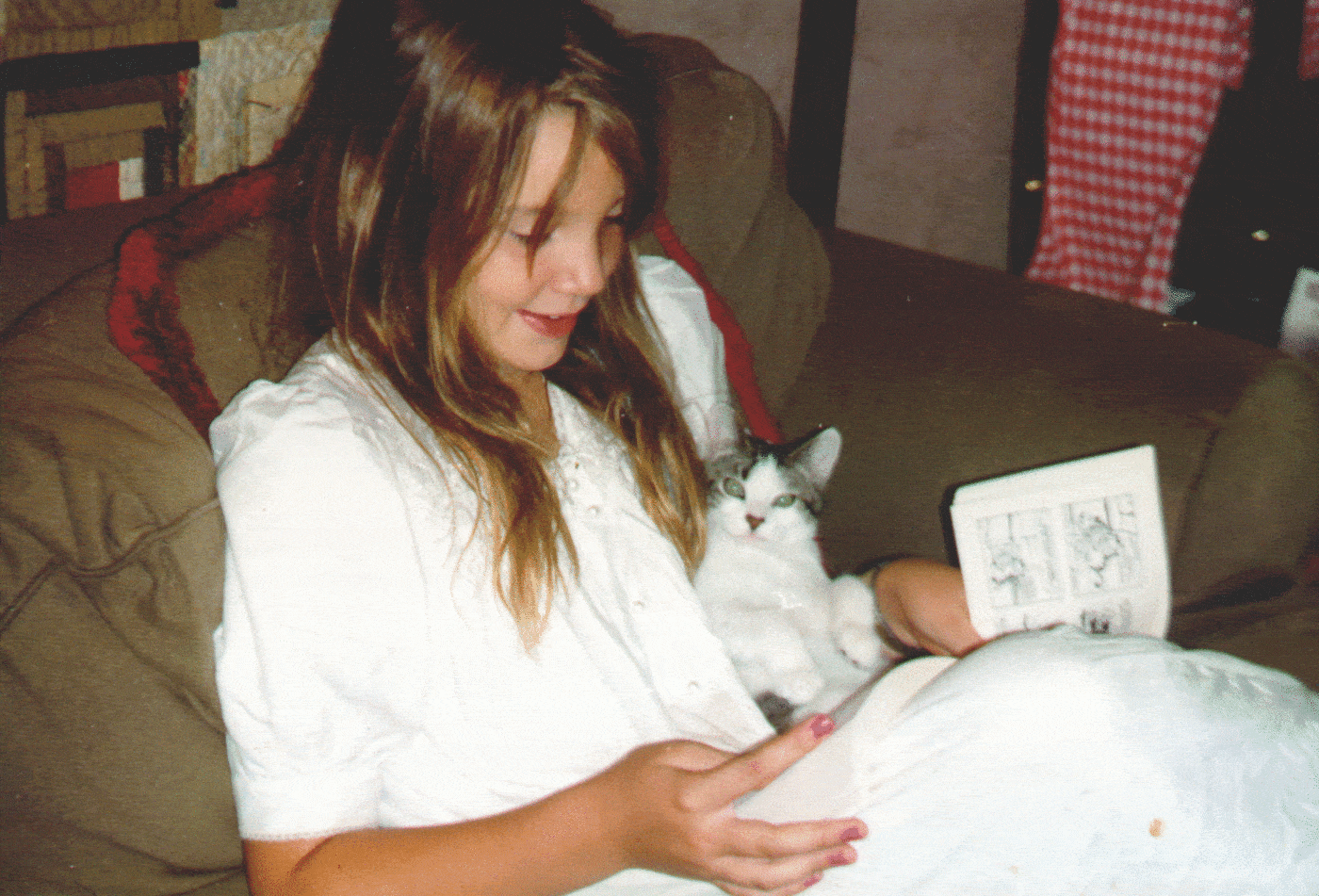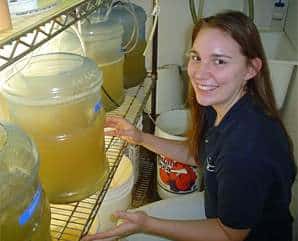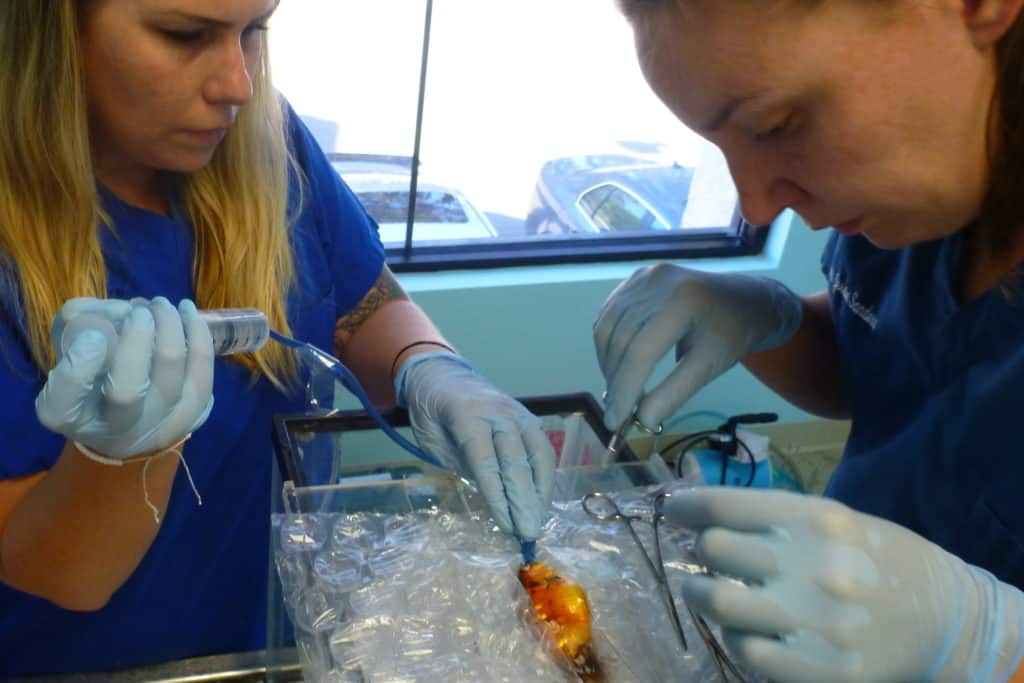Our office gets countless inquiries from students asking how they can get started in a career in aquatic veterinary medicine. And our #1 question asked by almost 100% of our clients…
How did you [Dr. Sanders] get into this field?
I was one of those obnoxious kids who knew I wanted to be a veterinarian when I was very young. I obsessively read every pet book in our school library and begged my parents for a kitten of my own. Eventually, they caved and gave me one of my very best friend of 13 years.

Since I knew I wanted to be a veterinarian, I had time to plan my approach. This will start off my list of key points to all of you younger aspiring veterinarians out there:
Go volunteer with animals, any animals. Get experience working with animals anywhere you are.
I spent one of my summers when I turned 16 taking night classes at the local community college to get my veterinary assistant certificate. Since I was under 18, I was limited in working with certain things, but I learned how to wrap surgical packs, prep fecals and restrain animals. I also learned that I may not be up for looking at blood, as observing surgery one day caused me to pass out.
After that experience, I started to explore other avenues. When it came time for college, after some miserable middle school and high school experiences, I selected a large school where I knew no one and they had a more exotic biology offering, specifically marine biology. (The University of Rhode Island continues to have a very strong marine biology program.) With a full semester of AP credits transferred, I had a somewhat light schedule that allowed me to volunteer at the local animal shelter one afternoon a week and one afternoon a week at Mystic Aquarium. My 1,500+ hours of volunteer work at Mystic was the most important part of my career path. I loved every minute. No matter the task at hand, and there are some really nasty ones, I threw myself into learning as much as I could. And here is my second point:
When you volunteer, always ask “can I help you with anything?”
Not all the jobs are glamorous or maybe even remotely fun. I chopped up so much half-rotted fruit to make bat food, cultured fruit flies in a culture material resembling vomit and ruined many pairs of khaki pants. But, when you show up and excellently perform the gross jobs, you are on the top of the list for the fun jobs, like shark physicals, de-barbing rays, packing fish for shipping and setting up collections. All of the staff I worked with were so happy to have me running around, taking care of the nasty jobs, that they shared all of their fishy “secrets” with me. A lot of those “secrets,” hint: they’re not really “secret,” set me up for the best spot in my career. I cannot thank those wonderful aquarists enough. And some of them are still there!
And thanks to Mystic and URI, I completed my senior honors thesis by sleeping over in the aquarium and collecting hatch brine samples at 2am. The paper that resulted is downloaded almost DAILY. Sometimes, you never know when you’ll contribute something so simple and helpful.

And the third point of how to get into aquatic veterinary medicine…
Study your butt off!
Veterinary school is EXTREMELY competitive. My grades at URI were good, but not outstanding. I applied to 6 schools since those were the ones I qualified for. If you have a particular school in mind, make sure you plan to take their prerequisites! Some require basic animal science or nutrition. I applied very late, and therefore my options were limited.
Of my 6 applications, I was only offered one interview. It was freezing and I thought I blew my interview. But, I ended up on the wait list and…. waited. As you may already know, that “wait” turned into a “yes.” Although I’ve never had it confirmed, I think what flipped that switch was my non-traditional obsession in aquatics. Tufts University does not have many aquatics lectures, or faculty, or any assistance whatsoever.
However, if I didn’t end up in veterinary school, I did have another job waiting for me as a veterinary technician. I knew that I’d give it another try the next year if Tufts hadn’t panned out.
Which leads me to my final point, and the MOST IMPORTANT:
Never, never, never give up.
If you want something bad enough, go get it. No matter how many times you are rejected, fall down or people tell you you’re crazy, get back up and keep going.
So, if you’ve skipped to the end to discover the “secret” to getting into aquatic veterinary medicine, I’ll give you the highlights:
- Go volunteer with animals, any animals. Get experience working with animals anywhere you are.
- When you volunteer, always ask “can I help you with anything?”
- Study your butt off!
- Never, never, never give up.
I hope to meet all of you in the future! If you’ve already made it to veterinary school, be sure to check out our Aquatic Veterinary Medicine Resources.

